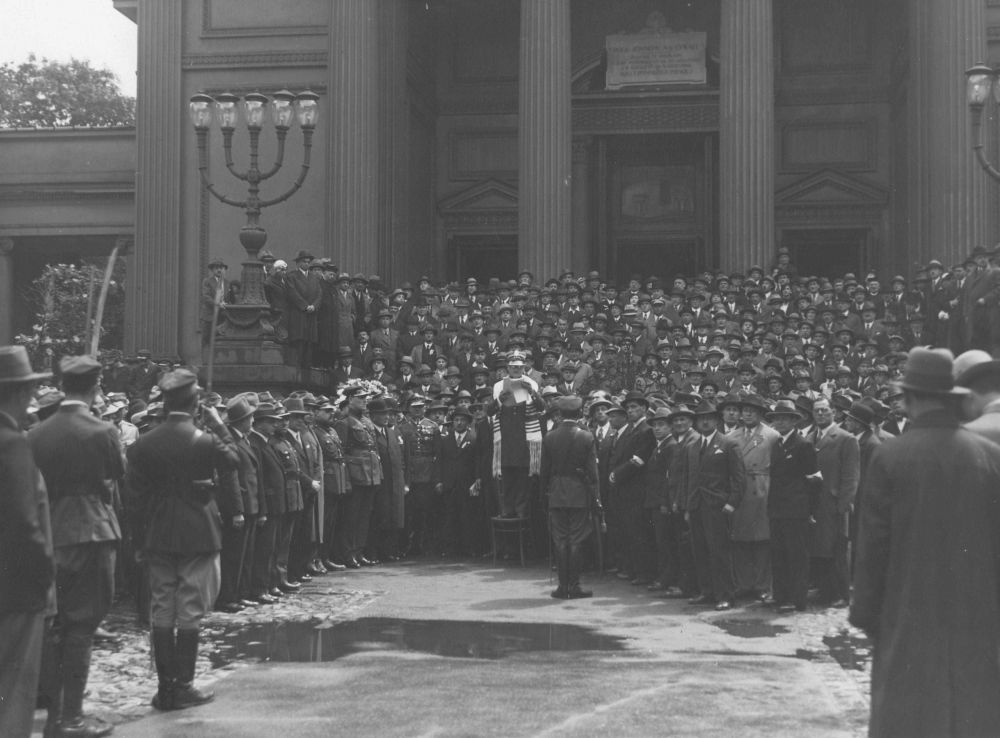- News
- Events
- Oneg Shabbat
- Collections
- Research
- Exhibitions
- Education
- Publishing Department
- Genealogy
- About the Institute
- Bookstore


Baruch Steinberg was born in 1897 in Przemyślany, 40 kilometers east of Lviv (today’s Ukraine). His ancestors were rabbis and when the family moved to Vienna during World War I, Steinberg also became a rabbi. He joined the Polish Military Organization and in 1919 took part in the defense of Lviv. In 1928 he became a chaplain of the Polish army of the Jewish faith, from 1930 he was a senior rabbi second class in the rank of major, he was the head of the Main Jewish Pastoral Office. In 1936, he became the chief rabbi of the Polish Army. At the same time, in the 1930s, he graduated from Oriental Studies at the Jan Kazimierz University in Lviv.
In 1939, he was one of the seven rabbis in the Polish Army and the head of the Non-Catholic Confessions Chaplaincy for the "Kraków" Army. After the September 1939 defeat, he was arrested by the Soviet authorities. After imprisonment in Starobelsk, Kozelsk and Moscow, he was murdered in Katyn, most likely on April 12, 1940. His body has never been recognized.
![steinberg_nac_fragment.jpg [482.71 KB]](https://www.jhi.pl/storage/image/core_files/2022/4/13/8545187e68442bd3b23938c34066de95/jpg/jhi/preview/steinberg_nac_fragment.jpg)
"Priests chaplains of all denominations represented in the Polish army held services in crowded barracks," recalled Bronisław Młynarski, a survivor from Starobielsk POW camp, in his book In Soviet captivity [W niewoli sowieckiej]. – “POWs of the Jewish, Protestant and Orthodox denomination took part en masse in Catholic services; and at the end of the mass, and after listening to the sermon, they joined in the fraternal choral singing of religious hymns. (…) More than once we went to the Circus, where one of the pastors gave wonderful sermons, somewhere on the upper scaffolding of this monstrous barrack. Another time, on Friday evenings, we went to a meager shed marked with the number seventeen, where hundreds of Jews, in the highest concentration, almost ecstatic, prayed fervently in Hebrew under the leadership of the chaplain Dr. Steinberg, the chief rabbi of the Polish army”.
In 2007, Steinberg was posthumously promoted to the rank of lieutenant colonel. On the 100th anniversary of Polish independence, on November 11, 2018, he was posthumously awarded the Order of the White Eagle – the highest Polish decoration.
Read also: Anniversary of the Katyn massacre. Read about Polish Jewish victims of the NKVD